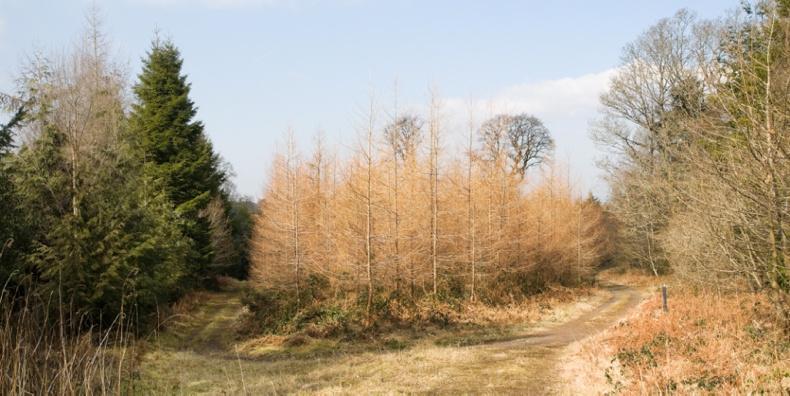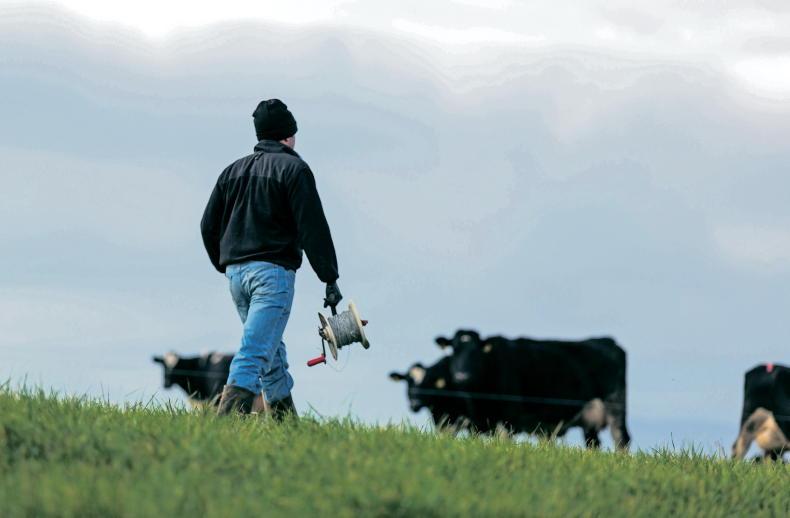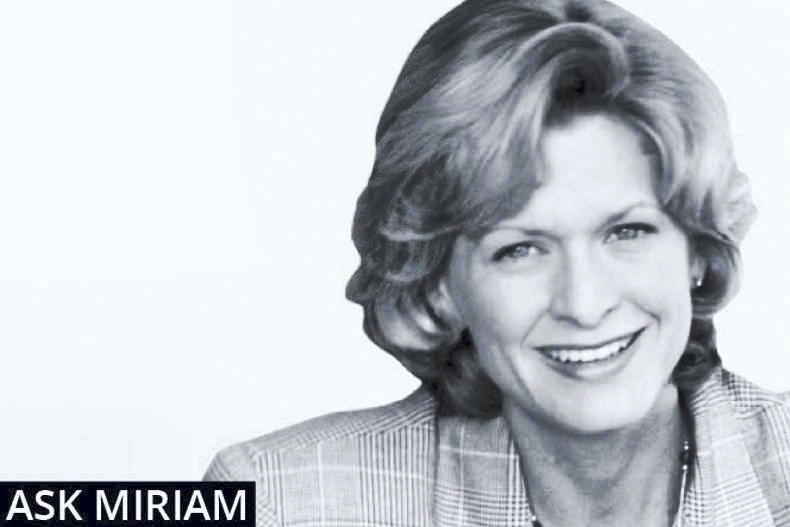Hi Peter,
I had a lady by the name of Angela on the phone to me this morning. She’s 75 years old, from Co Kerry, and has 40 acres. She can’t decide whether to sell it or plant it and was looking for advice. I thought you might be the most relevant person in the Journal for her to speak to. You might be able to give her a call?
Thanks, Mary
Queries come to me in many different ways. I rang Angela and had a good chat with her. She was, as Mary said, very nice. Angela read the article on succession planning recently. As she said herself, she is in a different situation, in that she doesn’t have to plan for succession at all.
“I have to plan for now,” she told me. “I am 75 years old and live alone. I have no children and my husband died 20 years ago. Upon his death, the 40 acres of land passed into my name. I initially farmed it, but more recently I leased it out.”
She told me she was approached by a forestry company to see if she was interested in planting it.
“I could certainly use the extra money. I’m on the state pension of €235 a week, but I can’t live on that anymore. There are always bills left to pay,” said Angela.
She has got the relevant information from the forestry company. However, Angela realised it would be a 30-year decision and she might not be around to see the trees cut down. It got her thinking, should she just sell the land instead? As we talked, three options became obvious:
1. Plant 30 acres of land and get €5,300 tax-free for 15 years.2. Sell the land either as forestry or to a local farmer, if she could get more.3. Continue to lease out the land. However, before we started getting into the hard figures, I asked Angela what were her first thoughts on the options. Very often it’s the emotional issues that are important, so it’s good to get them out first.
“My first reaction is not to plant it,” she said.
However, as we talked through this, she said the reason was because planting it “was often seen as a failure to farming in the past around here”. But if you plant it, you still own it. If you sell it, it’s gone, I said, more to develop the conversation than anything else.
“I never thought I would sell it either, but time has moved on,” she said. Angela has decided to keep 10 acres around her house in grass, no matter what the decision.
“That’s what I will be looking at every day,” she said.
I then tried to phrase my words carefully, asking her if there was anyone she wanted to bequeath money to after she was gone.
“You mean when I die? You don’t have to tiptoe around the subject for me,” she said laughing. “I always thought having the land was a safeguard, but with things tight, I need more money now. I don’t really understand the Fair Deal scheme.”
Angela is still actively driving around, so this could be a long time away, but you have to take that into consideration. Taking her advice on being straight talking, I suggested she should update her will and get a power of attorney signed, identifying someone who is able to make decisions for her if she is no longer capable.
Now, to the hard financial facts.
Forestry
We know she would get €5,300 tax-free. Put in another €100/acre for the land she is keeping, and after taking 20% tax off the land rental income, it would leave her with around €6,000 year after tax for 15 years.
Rent out
At €100 an acre, that would be straight €4,000 before tax or €3,200 after tax.
Sell
Angela’s biggest concern with this was the capital gains tax she would have to pay.
“The forestry company offered me €4,000 an acre,” she said.
“That is the base price then,” I responded. “You might get more from a local farmer.”
Taking €4,000 per acre first, would mean she gets €120,000 for the land she wants to sell. Looking back at the records, I estimated the land was valued at £2,200 back in the early ’80s or €2,800 an acre. The capital gains tax indexation is 2.03, which actually brings the current value up to €5,600.
“Simply put, you don’t have any capital gains tax unless you get over €5,600 for the land,” I told her. Angela didn’t think she would get that, so it should not impact the decision.
If she sold the land and put it in a deposit account, the poor interest rates would mean she would only get a maximum of €2,000 a year and more likely less. The 41% Deposit Interest Rate Tax (DIRT) would nearly halve this to closer to €1,000. I told her because she is over 65 and earning less than €18,000 she might get an exemption from DIRT tax and income tax.
“Even getting that wouldn’t give me much,” said Angela.
“You would have to start spending some of the capital each year. If you used €5,000 a year to live on, the lump sum from selling the land would last 23 to over 30 years, depending on what you would get for the land,” I responded. Even at the end of that, you would still have your house and 10 acres. The question I asked her, is €6,000 a year enough? CL
Hi Peter,
I had a lady by the name of Angela on the phone to me this morning. She’s 75 years old, from Co Kerry, and has 40 acres. She can’t decide whether to sell it or plant it and was looking for advice. I thought you might be the most relevant person in the Journal for her to speak to. You might be able to give her a call?
Thanks, Mary
Queries come to me in many different ways. I rang Angela and had a good chat with her. She was, as Mary said, very nice. Angela read the article on succession planning recently. As she said herself, she is in a different situation, in that she doesn’t have to plan for succession at all.
“I have to plan for now,” she told me. “I am 75 years old and live alone. I have no children and my husband died 20 years ago. Upon his death, the 40 acres of land passed into my name. I initially farmed it, but more recently I leased it out.”
She told me she was approached by a forestry company to see if she was interested in planting it.
“I could certainly use the extra money. I’m on the state pension of €235 a week, but I can’t live on that anymore. There are always bills left to pay,” said Angela.
She has got the relevant information from the forestry company. However, Angela realised it would be a 30-year decision and she might not be around to see the trees cut down. It got her thinking, should she just sell the land instead? As we talked, three options became obvious:
1. Plant 30 acres of land and get €5,300 tax-free for 15 years.2. Sell the land either as forestry or to a local farmer, if she could get more.3. Continue to lease out the land. However, before we started getting into the hard figures, I asked Angela what were her first thoughts on the options. Very often it’s the emotional issues that are important, so it’s good to get them out first.
“My first reaction is not to plant it,” she said.
However, as we talked through this, she said the reason was because planting it “was often seen as a failure to farming in the past around here”. But if you plant it, you still own it. If you sell it, it’s gone, I said, more to develop the conversation than anything else.
“I never thought I would sell it either, but time has moved on,” she said. Angela has decided to keep 10 acres around her house in grass, no matter what the decision.
“That’s what I will be looking at every day,” she said.
I then tried to phrase my words carefully, asking her if there was anyone she wanted to bequeath money to after she was gone.
“You mean when I die? You don’t have to tiptoe around the subject for me,” she said laughing. “I always thought having the land was a safeguard, but with things tight, I need more money now. I don’t really understand the Fair Deal scheme.”
Angela is still actively driving around, so this could be a long time away, but you have to take that into consideration. Taking her advice on being straight talking, I suggested she should update her will and get a power of attorney signed, identifying someone who is able to make decisions for her if she is no longer capable.
Now, to the hard financial facts.
Forestry
We know she would get €5,300 tax-free. Put in another €100/acre for the land she is keeping, and after taking 20% tax off the land rental income, it would leave her with around €6,000 year after tax for 15 years.
Rent out
At €100 an acre, that would be straight €4,000 before tax or €3,200 after tax.
Sell
Angela’s biggest concern with this was the capital gains tax she would have to pay.
“The forestry company offered me €4,000 an acre,” she said.
“That is the base price then,” I responded. “You might get more from a local farmer.”
Taking €4,000 per acre first, would mean she gets €120,000 for the land she wants to sell. Looking back at the records, I estimated the land was valued at £2,200 back in the early ’80s or €2,800 an acre. The capital gains tax indexation is 2.03, which actually brings the current value up to €5,600.
“Simply put, you don’t have any capital gains tax unless you get over €5,600 for the land,” I told her. Angela didn’t think she would get that, so it should not impact the decision.
If she sold the land and put it in a deposit account, the poor interest rates would mean she would only get a maximum of €2,000 a year and more likely less. The 41% Deposit Interest Rate Tax (DIRT) would nearly halve this to closer to €1,000. I told her because she is over 65 and earning less than €18,000 she might get an exemption from DIRT tax and income tax.
“Even getting that wouldn’t give me much,” said Angela.
“You would have to start spending some of the capital each year. If you used €5,000 a year to live on, the lump sum from selling the land would last 23 to over 30 years, depending on what you would get for the land,” I responded. Even at the end of that, you would still have your house and 10 acres. The question I asked her, is €6,000 a year enough? CL










SHARING OPTIONS